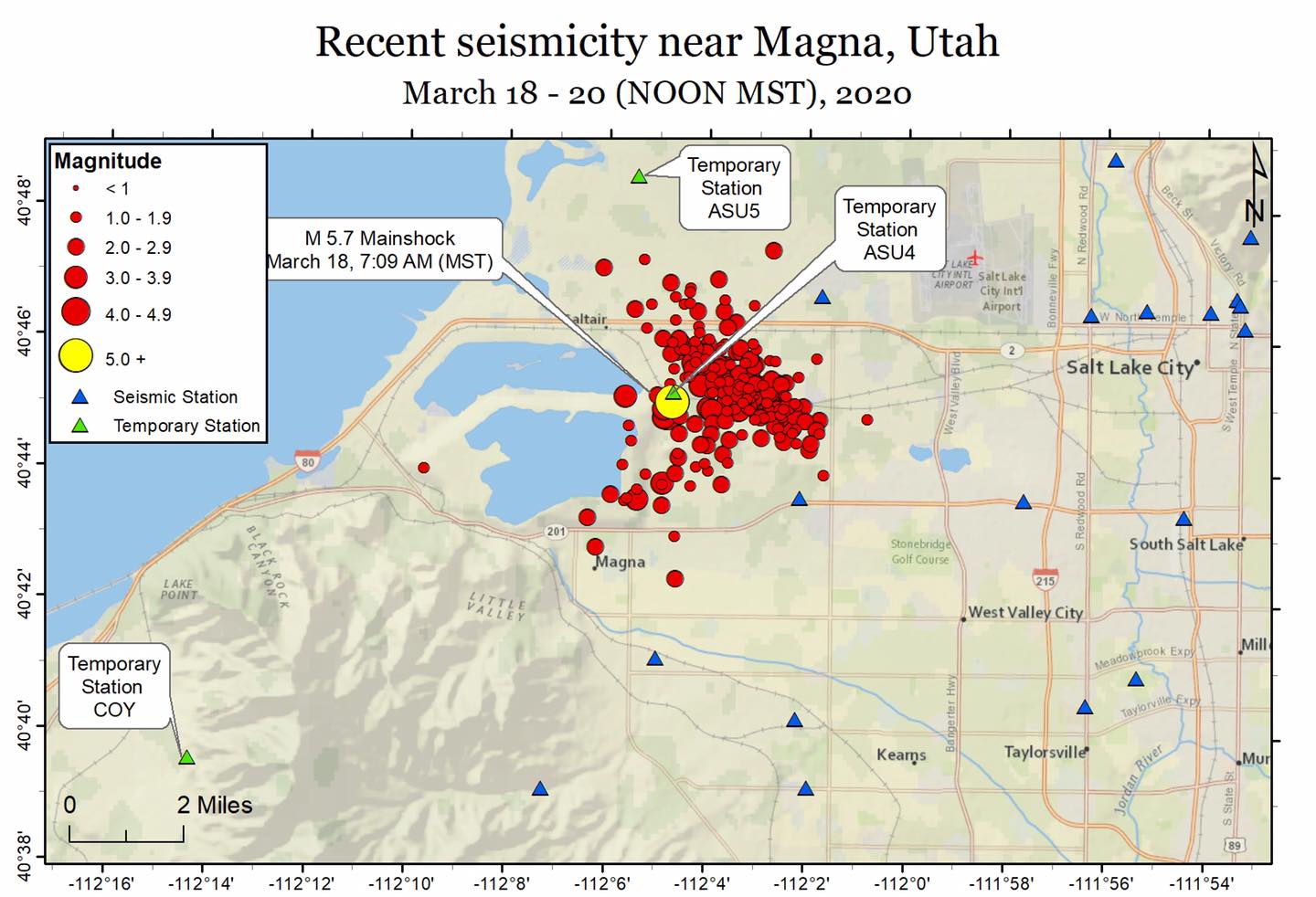From the Utah Division of Emergency Management:
With a magnitude 3.9 aftershock today in Magna, we began getting a lot of questions on Twitter about what it all means.
But a deeper question led us to write the following:
Can we have a talk about earthquake anxiety?
This is dedicated to all of our friends, old and new, who have been reaching out to us in direct messages and through comments.
We want to send you our love and compassion.
Have you, or anyone you know, felt any of these after the Wednesday earthquake or any of its aftershocks?
• sleeplessness
• nervousness
• lack of focus
• “phantom” earthquakes
• endless questions and wondering
If you answered yes, you may have anxiety.
You need to know this is completely normal. You are not alone.
If it’s your loved one or friend, please be kind and caring. Please listen to them. Stay open. Be patient.
Anxiety can’t be forced away. It doesn’t have a set timeline.
Three things tend to help ease earthquake anxiety:
Facts, action, and time
Facts to ease earthquake anxiety:
We have great scientists in Utah.
Utah is earthquake country. Last year we had 2,300 quakes. Most were not felt.
Most aftershocks from Wednesday’s quake have not been felt. As of Monday, there had been 334.
So you have survived more earthquakes than you could even imagine.
We expect to feel aftershocks from the Wednesday earthquake for days or weeks.
This is completely normal and does not mean a stronger or larger earthquake is coming as a result of the original Magna quake.
The earthquake we had on Wednesday resulted in some localized damages and no injuries or fatalities.
We got through it with a memorable wakeup call.
The worst-case scenario for Utah is a magnitude 7 earthquake.
But even from that size of earthquake, we expect most buildings to stay standing, especially if they are newer.
Even in our worst-case scenario earthquake, which you can read about here,
we expect 99.9% of Utahns to survive.
The question, is what do you want your survival to look like?
Actions to ease earthquake anxiety:
We conducted a poll recently to see if people would feel less anxious if they took emergency preparedness actions.
Poll results:
65% said yes
Simple actions include
• Sturdy shoes by your bed
• Food and water storage
• Flashlight and extra batteries
• Meet your neighbors
• Strap your water heater to the studs.
• Secure heavy furniture to walls.
• Walk around your house with your family
• Look for heavy things that could fall on beds. Remove them.
• Talk with your children about what to do in each room of a home during a quake. For example, if they are in bed when an earthquake happens, stay there. Otherwise, get under a sturdy piece of furniture.
Earthquake damage is NOT covered by your homeowners policy.
Shop around for earthquake insurance.
Don’t be discouraged by your first quote.
Follow our @BeReadyUtah program and visit their earthquake page.
Make emergency preparedness a weekly or monthly activity until it becomes a habit.
Use your nervous energy to work toward a resolution.
Time to ease earthquake anxiety:
Over time, aftershocks will subside and become less frequent.
Over time, anxiety will begin to fade.
Mother Nature has given us time to prepare.
Final thoughts:
We are Utah.
We do things together.
We get through hard things together.
Band together as neighborhoods, as families.
Don’t waste this opportunity to learn earthquake facts, take charge with earthquake preparedness and take time to heal. Consider the Disaster Distress Helpline Call 1-800-985-5990 or text TalkWithUs to 66746 to connect with a trained crisis counselor. Visit the Disaster Distress Helpline website.

